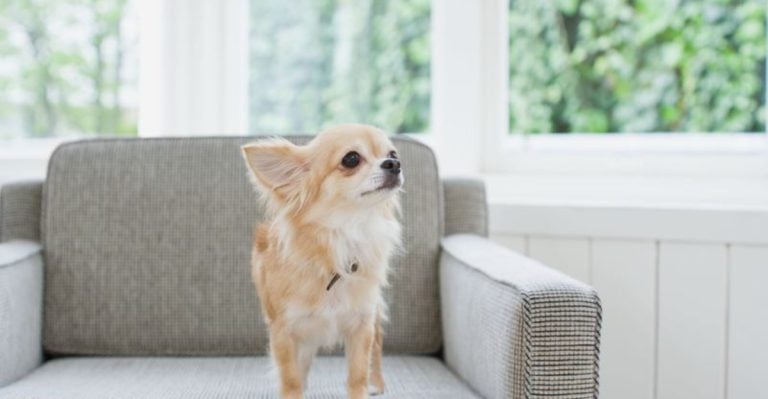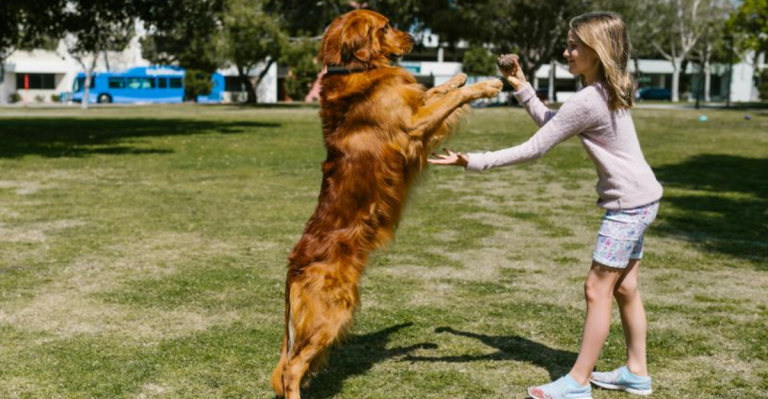Getting a Dog? These 7 Breeds Are Famous for Their Good Behavior
Bringing a furry friend into your home is a big decision—one filled with excitement, joy, and yes, a fair bit of responsibility. Whether you’re a first-time dog owner or simply looking for a more laid-back companion, choosing a breed known for good behavior can make all the difference. While every dog has its own personality, some breeds are naturally more trainable, better at following commands, and more comfortable adapting to family life.
Well-behaved dogs are often calm, eager to please, and quick learners, which makes everything from house training to daily walks a much more enjoyable experience. These breeds typically thrive on positive reinforcement and build strong, cooperative bonds with their humans. They’re not just obedient—they’re also affectionate, loyal, and a true pleasure to live with.
If you’re hoping for a canine companion that fits seamlessly into your routine, listens well, and rarely causes chaos, you’re in the right place. The breeds on this list consistently rank high for trainability and manners, making them ideal for families, singles, and seniors alike. Whether you live in a bustling city apartment or a quiet country home, these dogs tend to adjust with grace.
Here are seven dog breeds that have earned their reputation as the best behaved—and they might just be the perfect fit for your lifestyle.
1. Golden Retriever: The Sunshine Companion
Radiating warmth and friendliness, Golden Retrievers are like walking sunshine with fur. Their patient temperament makes them incredibly adaptable to family life, whether you have small children, other pets, or frequent visitors. These intelligent dogs catch on to training with remarkable speed and enthusiasm.
Historically bred as hunting companions, Goldens possess a natural desire to make their owners happy. This people-pleasing attitude translates into a dog that responds beautifully to positive reinforcement. They rarely show aggression and typically maintain their cool even in chaotic situations.
First-time dog owners often find success with Goldens because they forgive training mistakes and consistently try to understand what you want from them. Their moderate energy level means they’re playful when appropriate but can settle down when needed. With proper exercise – usually a daily walk and some playtime – a Golden Retriever becomes the well-behaved companion many dog lovers dream about.
2. Labrador Retriever: America’s Favorite Four-Legged Friend
America’s most popular dog breed for decades, the Labrador Retriever has earned its top spot through a winning combination of intelligence and easygoing charm. Labs come in three classic colors – yellow, black, and chocolate – but their temperament remains consistently wonderful across all varieties. Their sturdy build makes them great playmates while their gentle mouths (developed for retrieving game without damage) make them naturally careful around children.
Training a Lab feels almost effortless as they grasp commands quickly and perform them with enthusiasm. Their food motivation makes positive reinforcement particularly effective – a small treat can inspire impressive learning. Originally bred as working dogs, Labs thrive when given jobs to do, even simple ones like fetching the newspaper or carrying a small backpack on walks.
Despite their boundless energy in puppyhood, well-exercised Labs mature into remarkably composed adult dogs. Their natural politeness extends to guests, other animals, and new situations, making them adaptable companions for nearly any household situation.
3. Poodle: The Brilliant Curly-Coated Genius
Don’t let the fancy haircuts fool you – Poodles rank among the smartest dog breeds on the planet. Available in three sizes (Standard, Miniature, and Toy), these curly-coated canines combine brainpower with an eagerness to please that makes training a joy rather than a chore. Their hypoallergenic coats also make them suitable for many families with allergies.
Unlike some intelligent breeds that use their smarts to get into trouble, Poodles channel their mental energy into learning and performing. They excel in obedience, agility, and even complex trick training. Their aristocratic appearance reflects their dignified behavior – Poodles typically maintain composure in various situations and rarely become overly excitable.
Standard Poodles originally worked as water retrievers, while the smaller varieties were developed as companions. This heritage created dogs with remarkable focus and attentiveness to their owners. With proper mental stimulation through training games and puzzles, Poodles develop into exceptionally well-mannered family members who understand household rules and respect boundaries naturally.
4. Cavalier King Charles Spaniel: Royal Manners in a Compact Package
Those soulful eyes aren’t just for show – Cavalier King Charles Spaniels possess a gentle spirit that makes them naturally well-behaved companions. Named after King Charles II of England, these dogs carry themselves with a quiet dignity that belies their playful nature. Their moderate size (13-18 pounds) makes them perfect for both apartments and larger homes.
Cavaliers blend two seemingly opposite temperaments perfectly: they’re sporty enough to enjoy outdoor activities but calm enough to snuggle quietly for hours. This adaptability makes them exceptionally easy to live with. They respond beautifully to gentle guidance and positive reinforcement, rarely requiring stern correction.
Perhaps their most endearing quality is their natural attunement to human emotions. Cavaliers seem to instinctively understand when to offer comfort and when to give space. This emotional intelligence prevents many behavior problems that plague other breeds. While they love everyone, Cavaliers form especially strong bonds with their family members, resulting in a dog that naturally wants to behave well to please those they love.
5. Border Collie: The Canine Einstein with a Work Ethic
“One-in-a-million intelligence” barely begins to describe the Border Collie’s mental capabilities. Originally bred to herd sheep in the challenging border country between England and Scotland, these dogs developed problem-solving skills that outshine almost every other breed. Their ability to learn commands – sometimes after just a single demonstration – seems almost supernatural.
Border Collies thrive with owners who understand their need for both physical exercise and mental challenges. When these needs are met, they display remarkable self-control and focus. Their natural working style involves watching and waiting for instructions, making them appear almost unnaturally well-behaved compared to more impulsive breeds.
Their intense desire to cooperate with humans creates a dog that naturally wants to follow rules once they understand them. Border Collies rarely need physical corrections during training – a disappointed tone from their beloved owner is usually punishment enough. For active families who enjoy training activities like agility, frisbee, or advanced obedience, the Border Collie’s combination of athleticism and trainability creates an exceptionally well-behaved companion.
6. Bernese Mountain Dog: The Gentle Giant with a Heart of Gold
Few sights are more impressive than a well-trained Bernese Mountain Dog walking calmly beside its owner. Despite their imposing size (70-115 pounds), “Berners” move through the world with remarkable gentleness and awareness of their surroundings. Their tri-colored coats (black, rust, and white) make them as beautiful as they are well-mannered.
Originating as farm dogs in Switzerland, Bernese Mountain Dogs developed a natural respect for boundaries and an intuitive understanding of appropriate behavior around livestock and children. This heritage translates into modern family life as a dog that seems to naturally understand household rules. Their moderate energy level means they’re playful when appropriate but settle down easily indoors.
Berners form deep bonds with their families and genuinely want to please them. This connection creates a dog that responds well to positive training methods without much stubbornness. While they mature slowly (often keeping puppy-like behavior until 2-3 years old), their good nature shines through even during adolescence. Their calm demeanor in public often draws comments from strangers about their exceptional behavior.
7. Shih Tzu: The Little Lion with Impeccable House Manners
Bred specifically to be companions to Chinese royalty, Shih Tzus have thousands of years of good behavior in their genetic background. Their name means “little lion,” but there’s nothing fierce about these charming little dogs except perhaps their loyalty. Weighing between 9-16 pounds, they pack an impressive amount of dignity into a small package.
Unlike some small breeds, Shih Tzus rarely develop “small dog syndrome” with proper socialization. They typically maintain a confident but polite demeanor around strangers and other animals. Their moderate energy needs make them particularly well-suited to apartment living and households with older adults, as they don’t require extensive exercise to behave well.
Perhaps most impressive is the Shih Tzu’s adaptability. Whether in a bustling household or a quiet retirement setting, they adjust their energy level to match their environment. While they enjoy short play sessions, they’re equally content lounging nearby while you work or watch TV. This natural inclination toward calmness indoors, combined with their affectionate nature, creates a dog that’s remarkably easy to live with despite their regal appearance.













